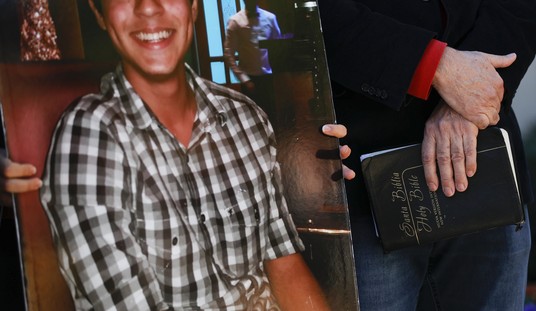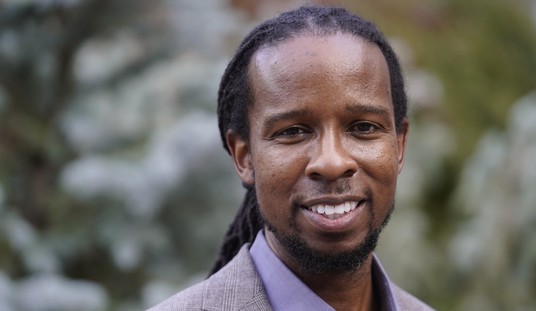Moses Farrow is the adopted son of Mia Farrow and Woody Allen. Moses is now an adult and today he published a lengthy account disputing claims of abuse made by his sister Dylan Farrow. From Buzzfeed, here’s a brief summary of Dylan Farrow’s claims:
Dylan and Mia Farrow have long alleged Allen molested the then-7-year-old girl in the attic of Mia’s Connecticut home in 1992. A team of investigators at Yale-New Haven Hospital wrote a contested report that found no evidence to support the claim, as did the New York Department of Social Services. However, a Connecticut prosecutor said he had “probable cause” to charge Allen, but declined to do so in order to spare Dylan from appearing in court. (The prosecutor was later rebuked for this by a disciplinary panel).
Dylan’s case received renewed public attention after she published a New York Times piece in 2014, alleging Allen led her to a “dim, closet-like attic” where he instructed her to lay on her stomach and play with an electric train set as he sexually assaulted her.
“He instructed me to lie down on my stomach and play with my brother’s toy train that was set up,” she told CBS in January of this year, “and he sat behind me in the doorway and as I played with the toy train, I was sexually assaulted.”
It’s a terrible story and one that has received some renewed attention in the #MeToo era. But today, Moses Farrow says he was there the day the abuse allegedly happened and saw no evidence of it. Furthermore, he states that Dylan’s account of how and where the alleged assault took place doesn’t add up:
August 4, 1992 was a warm, sunny day in Bridgewater, Connecticut, but in our family’s country home, Frog Hollow, there was a chill in the air. My mother, Mia Farrow, was out shopping with her close friend since childhood, Casey Pascal. I was 14 at the time, and home that day with my little sister Dylan, who had just turned seven, my four-year-old brother Satchel (who now goes by the name Ronan) and Casey’s three kids. We were being supervised by our nanny, Kristi, as well as Casey’s nanny, Alison, and our French tutor, Sophie. It was a full house.
There was another grown-up in the TV room that day, sitting on the floor, watching “Who Framed Roger Rabbit?” with the rest of us – Woody Allen. On the surface, it was not unlike his previous visits to our country home. But my mother had put all of us on notice not to let him out of our sight. She was understandably furious: seven months earlier she had learned that he was in an intimate relationship with my 21-year-old sister Soon-Yi, after discovering Polaroids of her in Woody’s apartment. For months now, she had been drilling it into our heads like a mantra: Woody was “evil,” “a monster,” “the devil,” and Soon-Yi was “dead to us.” This was the constant refrain, whether or not Woody was around. (So often did she repeat it that Satchel would announce to one of our nannies, “My sister is fucking my father.” He had just turned four.) My mother was our only source of information about Woody – and she was extremely convincing…
As the “man of the house” that day, I had promised to keep an eye out for any trouble, and I was doing just that. I remember where Woody sat in the TV room, and I can picture where Dylan and Satchel were. Not that everybody stayed glued to the same spot, but I deliberately made sure to note everyone’s coming and going. I do remember that Woody would leave the room on occasion, but never with Dylan. He would wander into another room to make a phone call, read the paper, use the bathroom, or step outside to get some air and walk around the large pond on the property.
Along with five kids, there were three adults in the house, all of whom had been told for months what a monster Woody was. None of us would have allowed Dylan to step away with Woody, even if he tried. Casey’s nanny, Alison, would later claim that she walked into the TV room and saw Woody kneeling on the floor with his head in Dylan’s lap on the couch. Really? With all of us in there? And if she had witnessed that, why wouldn’t she have said something immediately to our nanny Kristi? (I also remember some discussion of this act perhaps taking place on the staircase that led to Mia’s room. Again, this would have been in full view of anyone who entered the living room, assuming Woody managed to walk off with Dylan in the first place.) The narrative had to be changed since the only place for anyone to commit an act of depravity in private would have been in a small crawl space off my mother’s upstairs bedroom. By default, the attic became the scene of the alleged assault.
In her widely-circulated 2014 open letter in The New York Times, the adult Dylan suddenly seemed to remember every moment of the alleged assault, writing, “He told me to lay on my stomach and play with my brother’s electric train set. Then he sexually assaulted me. He talked to me while he did it, whispering that I was a good girl, that this was our secret, promising that we’d go to Paris and I’d be a star in his movies. I remember staring at that toy train, focusing on it as it traveled in its circle around the attic. To this day, I find it difficult to look at toy trains.”
It’s a precise and compelling narrative, but there’s a major problem: there was no electric train set in that attic. There was, in fact, no way for kids to play up there, even if we had wanted to. It was an unfinished crawl space, under a steeply-angled gabled roof, with exposed nails and floorboards, billows of fiberglass insulation, filled with mousetraps and droppings and stinking of mothballs, and crammed with trunks full of hand-me-down clothes and my mother’s old wardrobes.
The idea that the space could possibly have accommodated a functioning electric train set, circling around the attic, is ridiculous. One of my brothers did have an elaborate model train set, but it was set up in the boys’ room, a converted garage on the first floor. (Maybe that was the train set my sister thinks she remembers?) Now, whenever I hear Dylan making a public statement about what allegedly happened to her that day when she was barely seven, I can only think of that imaginary train set, which she never brought up during the original investigation or custody hearing…
The next morning, Woody was still at the house. Before he left, I briefly wandered into the living room and witnessed Dylan and Satchel sitting with him on the floor by a wall with a big picture window. The kids had a catalogue from a toy store and were marking off the toys they wanted him to bring back on his next visit. It was a cheerful, playful atmosphere – which would soon seem jarring compared to what Mia would allege happened less than a day before. Many years later, I once mentioned my recollection to Woody, and he said that he, too, remembered it quite vividly, telling me how he had told Satchel and Dylan to mark one or two toys each, but they had laughingly managed to check off virtually every toy in the catalogue. He remembers bringing it back to the city with him, with the intention of purchasing a few of the items they had checked. He told me he wound up holding onto that catalogue for years, having no idea that he would never see his daughter again.
Beyond suggesting that Woody Allen was never alone with Dylan that day, that she displayed no aversion to him the next morning, and that there was no train in the attic as Dylan has claimed, Moses also describes his mother Mia as a controlling, abusive person:
The summer between first and second grades, she was having new wallpaper installed in the bedroom I slept in, across the hall from hers on the second floor of the Connecticut house. I was getting ready to go to sleep, when my mother came over to my bed and found a tape measure. She gave me a piercing look that stopped me in my tracks and asked if I had taken it, as she had been looking for it all day. I stood in front of her, frozen. She asked why it was on my bed. I told her I didn’t know, that perhaps a workman had left it there. She asked again and again and again.
When I didn’t give the answer she wanted, she slapped my face, knocking off my glasses. She told me I was lying and directed me to tell my brothers and sisters that I had taken the tape measure. Through my tears I listened to her as she explained that we would rehearse what should have happened. She would walk into the room and I would tell her I was sorry for taking the tape measure, that I had taken it to play with and that I would never do it again. She made me rehearse it at least a half-dozen times.
That was the start of her coaching, drilling, scripting, and rehearsing – in essence, brainwashing. I became anxious and fearful. Once, when I was given a new pair of jeans, I thought they would look cool if I cut off a couple of the belt loops. When Mia saw what I had done, she spanked me repeatedly and had me remove all my clothing, saying, “You’re not deserving of any clothes” and making me stand naked in the corner of her room, in front of my older siblings who had just returned from dinner with their father André. (After I spoke to People magazine in 2014 about how I was treated, Dylan called it a “betrayal” and said that I was “dead to” her. She later publicly dismissed my recollections of my childhood as “irrelevant.” This from a woman who now styles herself an “advocate for abuse victims.”)
Fighting back was not a viable option. One summer day, Mia accused me of leaving the curtains closed in the TV room. They had been drawn the day before when Dylan and Satchel were watching a movie. She insisted that I had closed them and left them that way. Her friend Casey had come over to visit and while they were in the kitchen, my mother insisted I had shut the curtains. At that point, I couldn’t take it anymore and I lost it, yelling, “You’re lying!” She shot me a look and took me into the bathroom next to the TV room. She hit me uncontrollably all over my body. She slapped me, pushed me backwards and hit me on my chest, shouting, “How dare you say I’m a liar in front of my friend. You’re the pathological liar.” I was defeated, deflated, beaten and beaten down. Mia had stripped me of my voice and my sense of self. It was clear that if I stepped even slightly outside her carefully crafted reality, she would not tolerate it. It was an upbringing that made me, paradoxically, both fiercely loyal and obedient to her, as well as deeply afraid.
Moses suggests this coaching of the children played a significant role in the accusation against Woody Allen. He claims to have witnessed her similarly coaching Dylan (then 7) when filming a video about what Allen had allegedly done to her. Investigators also felt the claims appeared coached:
At the time, of course, I knew nothing about the six-month criminal investigation conducted by the Child Sexual Abuse Clinic of the Yale/New Haven Hospital, ordered by the Connecticut state police. But since this allegation was renewed a few years ago, I’ve seen the results of that investigation. It specifically concluded that “Dylan was not abused by Mr. Allen,” that her statements had a “rehearsed quality” and that they were “likely coached or influenced by her mother.” Those conclusions perfectly match my own childhood experience: coaching, influencing, and rehearsing are three words that sum up exactly how my mother tried to raise us. I know that Dylan has recently referred to this brainwashing theory as “spin” by our father – but it was nothing of the sort. It was not only the conclusion reached by a state-ordered investigation, it was the reality of life in our household.
Since his lengthy post went up, Dylan Farrow has responded on Twitter, claiming his statements are “easily disproven.”
All I have to say with regard to the latest regarding my brother. pic.twitter.com/8WVAXOMKZV
— Dylan Farrow (@RealDylanFarrow) May 23, 2018
Of course, it’s easy to say that Woody Allen must be guilty because of his marriage to Soon-Yi Previn who was just 20-years-old (and Mia Farrow’s daughter) at the time they began a romantic relationship. I’m not defending that, but there’s a significant difference, legally and morally, between seven and twenty. On its face, Moses Farrow’s account certainly sounds credible. There is clearly a lot of bad blood between him and his adopted mother and sister Dylan, but he makes a case that some of that, especially toward his mother, is well-deserved.








Join the conversation as a VIP Member